Items filtered by date: May 2017
How the DASH Diet May Help Those with Gout
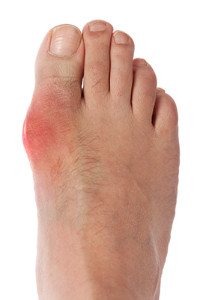 Gout, a common form of inflammatory arthritis, is a joint disease that can be particularly painful when it flares up. A certain diet has been found to lower levels of uric acid in the bloodstream. The DASH (Dietary Approaches to Stop Hypertension) diet, which is high in fruits and vegetables and low in salt, sugar, and red meat, can be very beneficial for people with gout. This diet is also low in purines, a compound that breaks down to form uric acid. After a study period of 26 years, doctors found that those who followed the DASH diet were less likely to develop gout compared to those who ate a typical Western diet.
Gout, a common form of inflammatory arthritis, is a joint disease that can be particularly painful when it flares up. A certain diet has been found to lower levels of uric acid in the bloodstream. The DASH (Dietary Approaches to Stop Hypertension) diet, which is high in fruits and vegetables and low in salt, sugar, and red meat, can be very beneficial for people with gout. This diet is also low in purines, a compound that breaks down to form uric acid. After a study period of 26 years, doctors found that those who followed the DASH diet were less likely to develop gout compared to those who ate a typical Western diet.
Gout is a foot condition that requires certain treatment and care. If you are seeking treatment, contact Dr. Mark Gagnon from Advanced Podiatry. Our doctor will treat your foot and ankle needs.
What Is Gout?
Gout is a type of arthritis caused by a buildup of uric acid in the bloodstream. It often develops in the foot, especially the big toe area, although it can manifest in other parts of the body as well. Gout can make walking and standing very painful and is especially common in diabetics and the obese.
People typically get gout because of a poor diet. Genetic predisposition is also a factor. The children of parents who have had gout frequently have a chance of developing it themselves.
Gout can easily be identified by redness and inflammation of the big toe and the surrounding areas of the foot. Other symptoms include extreme fatigue, joint pain, and running high fevers. Sometimes corticosteroid drugs can be prescribed to treat gout, but the best way to combat this disease is to get more exercise and eat a better diet.
If you have any questions please feel free to contact one of our offices located in Crestwood, Orland Park, and Summit, IL . We offer the newest diagnostic and treatment technologies for all your foot and ankle needs.
Why Blood Circulation is Important for Your Feet
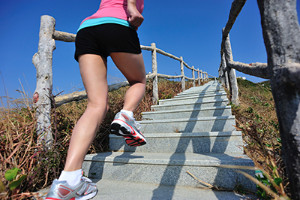 The most important function of our blood is to deliver oxygen from our lungs to the farthest parts of our body while removing carbon dioxide and other waste products. Hormones, immune cells, and signalling molecules all travel through the blood in order to support the body's vital processes. Poor blood circulation can occur as we age and is associated with various diseases. Numbness and tingling in the feet are common symptoms of poor blood flow. Coldness in the feet is also a symptom of poor blood flow since the blood is meant to keep the body at a stable, warm temperature. Lastly, foot pain may also be a sign of poor circulation. This may occur after standing or sitting down for a long period of time.
The most important function of our blood is to deliver oxygen from our lungs to the farthest parts of our body while removing carbon dioxide and other waste products. Hormones, immune cells, and signalling molecules all travel through the blood in order to support the body's vital processes. Poor blood circulation can occur as we age and is associated with various diseases. Numbness and tingling in the feet are common symptoms of poor blood flow. Coldness in the feet is also a symptom of poor blood flow since the blood is meant to keep the body at a stable, warm temperature. Lastly, foot pain may also be a sign of poor circulation. This may occur after standing or sitting down for a long period of time.
Poor circulation is a serious condition and needs immediate medical attention. If you have any concerns with poor circulation in your feet contact Dr. Mark Gagnon of Advanced Podiatry. Our doctor will treat your foot and ankle needs.
Poor Circulation in the Feet
Poor blood circulation in the feet and legs is can be caused by peripheral artery disease (PAD), which is the result of a buildup of plaque in the arteries.
Plaque buildup or atherosclerosis results from excess calcium and cholesterol in the bloodstream. This can restrict the amount of blood which can flow through the arteries. Poor blood circulation in the feet and legs are sometimes caused by inflammation in the blood vessels, known as vasculitis.
Causes
Lack of oxygen and oxygen from poor blood circulation restricts muscle growth and development. It can also cause:
- Muscle pain, stiffness, or weakness
- Numbness or cramping in the legs
- Skin discoloration
- Slower nail & hair growth
- Erectile dysfunction
Those who have diabetes or smoke are at greatest risk for poor circulation, as are those who are over 50. If you have poor circulation in the feet and legs it may be caused by PAD and is important to make changes to your lifestyle in order to reduce risk of getting a heart attack or stroke. Exercise and maintaining a healthy lifestyle will dramatically improve conditions.
As always, see a podiatrist as he or she will assist in finding a regimen that suits you. A podiatrist can also prescribe you any needed medication.
If you have any questions please feel free to contact one of our offices located in Crestwood, Orland Park, and Summit, IL . We offer the newest diagnostic and treatment technologies for all your foot and ankle needs.
Foot Concerns for People of a Certain Age
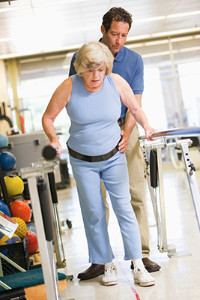 Foot diseases and other foot-related problems often become more prevalent as we age. Years of bearing body weight and certain ailments can combine to wreak havoc on the feet and ankles. The foot problems we may experience as time goes on vary from minor to potentially very serious. First and foremost, if you are a diabetic, foot care needs to be a high priority. Diabetic ulcers and sores, if left untreated, can lead to infection and even gangrene, resulting in amputation. Daily foot inspections are necessary to ensure that there are no cuts, sores, or swelling. Even something as seemingly minor as cracked skin on the foot can lead to terrible consequences if gone unnoticed. Using moisturizer and soap that doesn’t dry out the skin can help in this area. That being said, it is also important to keep the feet dry, as toenail fungus grows more readily in moist environments. Keeping the feet elevated is also a good tip. This will help circulate the blood to the lower extremities. Poor circulation can lead to serious medical conditions.
Foot diseases and other foot-related problems often become more prevalent as we age. Years of bearing body weight and certain ailments can combine to wreak havoc on the feet and ankles. The foot problems we may experience as time goes on vary from minor to potentially very serious. First and foremost, if you are a diabetic, foot care needs to be a high priority. Diabetic ulcers and sores, if left untreated, can lead to infection and even gangrene, resulting in amputation. Daily foot inspections are necessary to ensure that there are no cuts, sores, or swelling. Even something as seemingly minor as cracked skin on the foot can lead to terrible consequences if gone unnoticed. Using moisturizer and soap that doesn’t dry out the skin can help in this area. That being said, it is also important to keep the feet dry, as toenail fungus grows more readily in moist environments. Keeping the feet elevated is also a good tip. This will help circulate the blood to the lower extremities. Poor circulation can lead to serious medical conditions.
If you need your feet checked, contact Dr. Mark Gagnon of Advanced Podiatry. Our doctor will attend to all of your foot and ankle needs and provide you with quality treatment.
Geriatrics and Podiatry
When people age, some common issues that may occur are bone density loss, dry skin, poor circulation, and rough brittle nails. These issues may also affect your foot health if the necessary steps are not taken to alleviate the problems.
It is important to take care of your feet because feet that are injured or diseased can affect your overall health. Having painful feet hinders your ability to do daily activities or may decrease your willingness to do the things that you need to do.
Visiting Your Geriatrician
As we age, health problems become more likely, so it is essential to visit your doctor for check-ups to ensure that you are doing the best you can to take care of your health. It is recommended to check your feet frequently for any possible cuts, bruises, swelling, corns or any other irregularities.
Taking Care of Elderly Feet
Cracked or dry feet can be treated by applying moisturizer often. It is also important not to wear old socks because the older the sock is, the higher the possibility there will be that there is bacteria there. Wear fresh socks and make sure they fit properly.
Proper foot health means that you can have a more active lifestyle and you will not be bogged down by pain. Foot health also leads to good circulation, which is paramount for overall health.
If you have any questions, please feel free to contact one of our offices located in Crestwood, Orland Park, and Summit, IL . We offer the newest diagnostic tools and technology to treat your foot and ankle needs.
Working on the Feet While Pregnant
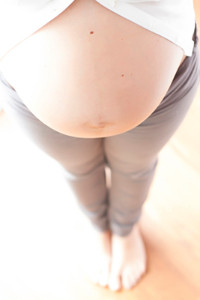 Pregnancy can create additional pressure on the feet, making certain everyday activities and responsibilities difficult for women. Women who work desk jobs should ensure that they’re sitting in chairs that offer optimal support, while women who spend a majority of their time standing should occasionally elevate their feet using a foot rest. Wearing comfortable shoes is also a must and should never be overlooked. Elevating the feet can also help pregnant women in managing edema, as the feet often swell during pregnancy.
Pregnancy can create additional pressure on the feet, making certain everyday activities and responsibilities difficult for women. Women who work desk jobs should ensure that they’re sitting in chairs that offer optimal support, while women who spend a majority of their time standing should occasionally elevate their feet using a foot rest. Wearing comfortable shoes is also a must and should never be overlooked. Elevating the feet can also help pregnant women in managing edema, as the feet often swell during pregnancy.
Pregnant women with swollen feet can be treated with a variety of different methods that are readily available. For more information about other cures for swollen feet during pregnancy, consult with Dr. Mark Gagnon from Advanced Podiatry. Our doctor will attend to all of your foot and ankle needs.
What Foot Problems Can Arise During Pregnancy?
One problem that can occur is overpronation, which occurs when the arch of the foot flattens and tends to roll inward. This can cause pain and discomfort in your heels while you’re walking or even just standing up, trying to support your baby.
Another problem is edema, or swelling in the extremities. This often affects the feet during pregnancy but tends to occur in the later stages.
How Can I Keep My Feet Healthy During Pregnancy?
- Wearing orthotics can provide extra support for the feet and help distribute weight evenly
- Minimize the amount of time spent walking barefoot
- Wear shoes with good arch support
- Wear shoes that allow for good circulation to the feet
- Elevate feet if you experience swelling
- Massage your feet
- Get regular, light exercise, such as walking, to promote blood circulation to the feet
If you have any questions please feel free to contact one of our offices located in Crestwood, Orland Park, and Summit, IL . We offer the newest diagnostic and treatment technologies for all your foot and ankle needs.
About Athlete’s foot
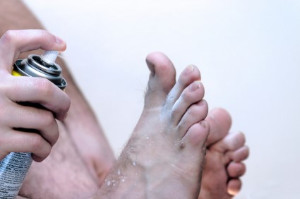 “Up to 70% of Americans contract athlete’s foot at some time in their lives,” cites Contemporary Clinic. Athlete’s foot is a fungal infection of the foot that many people fall victim to at some point in their lives. Athlete’s foot can be contracted either by having direct contact with someone who has the infection or by being exposed to contaminated surfaces or items. Those who use community swimming pools and showers are most at risk. Other causes of the condition include wearing heavy or tight shoes, as this creates an overly warm and moist environment that is ideal for fungal growth.
“Up to 70% of Americans contract athlete’s foot at some time in their lives,” cites Contemporary Clinic. Athlete’s foot is a fungal infection of the foot that many people fall victim to at some point in their lives. Athlete’s foot can be contracted either by having direct contact with someone who has the infection or by being exposed to contaminated surfaces or items. Those who use community swimming pools and showers are most at risk. Other causes of the condition include wearing heavy or tight shoes, as this creates an overly warm and moist environment that is ideal for fungal growth.
Athlete’s foot is an inconvenient condition that can be easily reduced with the proper treatment. If you have any concerns about your feet and ankles, contact Dr. Mark Gagnon from Advanced Podiatry. Our doctor will treat your foot and ankle needs.
Athlete’s Foot: The Sole Story
Athlete's foot, also known as tinea pedis, can be an extremely contagious foot infection. It is commonly contracted in public changing areas and bathrooms, dormitory style living quarters, around locker rooms and public swimming pools, or anywhere your feet often come into contact with other people.
Solutions to Combat Athlete’s Foot
- Hydrate your feet by using lotion
- Exfoliate
- Buff off nails
- Use of anti-fungal products
- Examine your feet and visit your doctor if any suspicious blisters or cuts develop
Athlete’s foot can cause many irritating symptoms such as dry and flaking skin, itching, and redness. Some more severe symptoms can include bleeding and cracked skin, intense itching and burning, and even pain when walking. In the worst cases, Athlete’s foot can cause blistering as well. Speak to your podiatrist for a better understanding of the different causes of Athlete’s foot, as well as help in determining which treatment options are best for you.
If you have any questions please feel free to contact one of our offices located in Crestwood, Orland Park, and Summit, IL . We offer the newest diagnostic and treatment technologies for all your foot and ankle needs.
